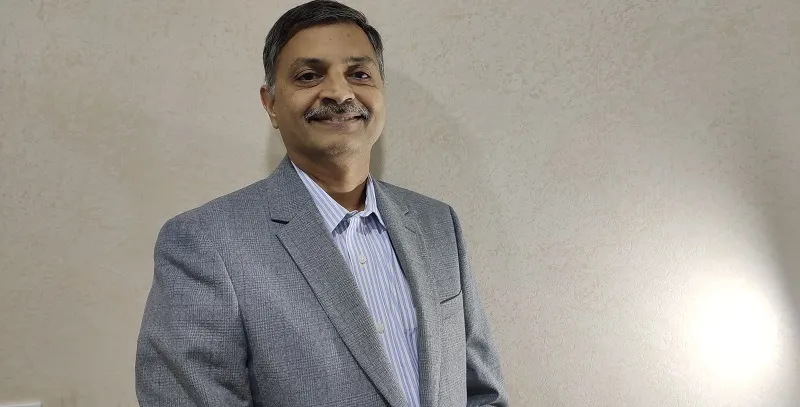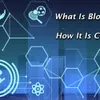Started by IIT alumni, Schrocken uses blockchain to bring transparency to enterprise business processes
San Jose and Hyderabad-based startup Schrocken is an enterprise blockchain-powered SaaS platform that helps businesses collaborate with other organisations to enable cross-enterprise transactions in a secure manner.
OEM factories are now becoming more interconnected with vendors. And as a result, more than ever, manufacturers are facing the challenge of sharing data across the ecosystem with transparency. Hence, industries are now increasingly using new-age technologies such as blockchain to reduce costs by capturing information flow with all stakeholders in the supply chain. Blockchain allows them to maintain transparency, track products, and improve supply chain governance.
A blockchain is a digital ledger that can verify transactions at each stage with consensus from the entire ecosystem. The technology allows various participants to connect to the network seamlessly, and there is no duplication of work or corruption in the system.
After spending two decades building enterprise applications, IIT-Kanpur alumni Sanjay Kuberkar and Yogendra Chordia decided to make use of this technology to address the challenges faced by many organisations across the world: integrating the fragmented ecosystems through blockchain.
The duo founded Schrocken in 2018.

Yogendra Chordia, Co-founder of Schrocken.
The San Jose and Hyderabad-based startup is an enterprise blockchain-powered SaaS platform that helps businesses collaborate with other organisations to enable cross-enterprise transactions in a secure and trusted environment.
“We help the pharma industry track vendors that manufacture different ingredients that go into the final product, and we connect the same to the regulators and financial institutions,” Sanjay says.
The early days
Sanjay and Yogendra were batch mates at IIT-Kanpur; they passed out in 1994. Years passed, and they kept in touch by helping each other out in their professional journey.
In August 2018, they began to use their software experience to build on top of blockchain because it offered, for the first time, a consensus mechanism among all parties in a transaction.
“With blockchain, ad hoc inspections can stop and save the industry millions of dollars in fines and regulatory compliances. The inspection can be reduced simply because the blockchain has captured each and every transaction in the pharma industry,” Yogendra says.
For example, in 2010, pharma major GlaxoSmithkline paid $750 million for poor manufacturing processes. According to sources, this was the highest amount paid in fines for not having good quality practices. And this is where startups like Schrocken bring in their expertise by going after a zero-inspection regime.

Schrocken Co-founder Sanjay Kuberkar.
How it works?
Schrocken is using distributed ledger technologies such as R3Corda and Hyperledger fabric to help companies build blockchains for the industry. It is also combining IoT with blockchain to increase productivity of machines. For example, companies that are into manufacturing may not realise there is warranty on the asset, and not just on the paper.
Schrocken also tracks the IoT data on the machines, and the blockchain helps companies to know the status of each machine, why it failed, and whether it is covered under warranties.
Apart from the manufacturers, these machines have half a dozen stakeholders. The OEMs sell the product to the distributors, then to companies that lease the product, and they further sub-lease it before it is used on the field. It is important to capture this data, and to know whether a particular machine is in the warranty period before the asset fails.
“This is big business as we can combine all digital data of an asset and link it to the warranty. Blockchain will ensure that the ecosystem knows how the assets are working,” Sanjay says.
According to the founders, at present, a couple of pharma companies are working on the Schrocken blockchain.
The market and future
According to Report Linker, the global blockchain technology market is expected to reach $57billion by 2025, registering a CAGR of 69.4 percent from 2019 to 2025.
At present, private blockchains in the corporate world are being championed by AWS, Oracle, IBM, and Microsoft. Open source platforms like Hyperledger and Ethereum are commonplace, and startups are using these to help enterprises build their blockchain platforms and trace their vendor ecosystem.
Schrocken, which was part of the Cisco Accelerator in 2019 and part of T-Hub, competes with other players in the space such as KoinEarth, Acyclic Labs, and Intain.
Currently bootstrapped, the companydoes not want to disclose its revenues, and says it makes money based on long-term contract with OEMs who want to handle their vendor ecosystem.
While Yogendra has been in the US for close to 20 years, Sanjay has been building businesses in India. The duo is now planning to focus on bringing in more customers from both the US and India on board.
But why the name? Schrocken is a district in the Austrian Alps. Known for its scenic peaks, it is an apt name for the startup, which wants to top information capture. Both Yogendra and Sanjay, apart from being classmates and founders, love mountaineering, and hence they came up with the name. And Schrocken aims to summit the blockchain revolution mountain.
(Edited by Megha Reddy)










